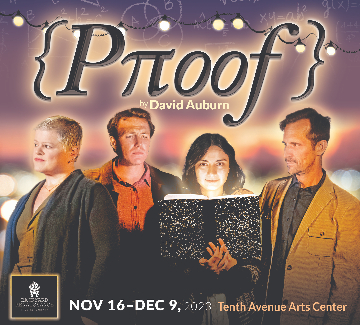MATHEMATICAL PLOT ADDS UP TO SOLID DRAMA
David Auburn is brave. Writing and marketing a play that, on the surface, centers on math sounds like a recipe for disaster. In a world where most adults pray that the tip at a restaurant will appear pre-calculated for them at the check’s bottom, selling a play about mathematicians and the significance of a theorem proof sounds like artistic suicide. But this 2001 drama won the Pulitzer Prize and Tony Award for Best Play that year because it is far more than a study of math theory, which is why it’s riveting.
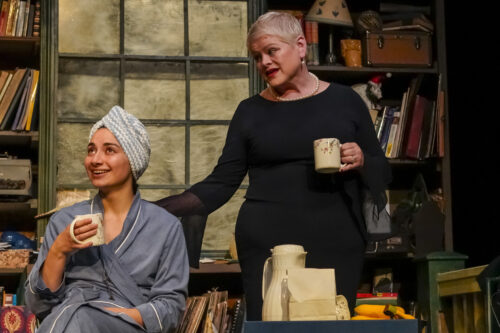
The storyline bounces around in time and, as such, challenges a critic to be specific about the plot without giving away a serious surprise early in Act I. Thus, I’ll keep descriptions purposefully vague as it’s not worth ruining that moment from this great play for future audiences.
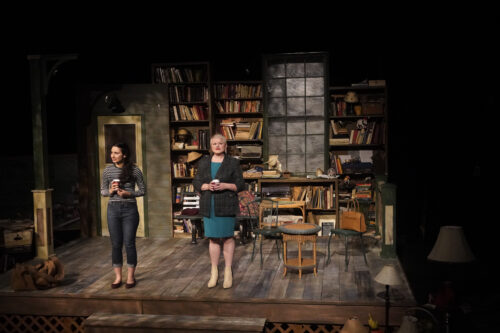
What can be said here is that Proof is much more of a family drama than a study of math. Catherine (Liliana Talwatte) is a 25-year-old math whiz whose skills still pale in comparison to the once-in-a-generation math brilliance of her father Robert (Francis Gercke), a modern day Einstein. Robert is held in staggering esteem in his math community for his revolutionary proofs back in his early 20s, especially by his students like young Hal (William Huffaker).
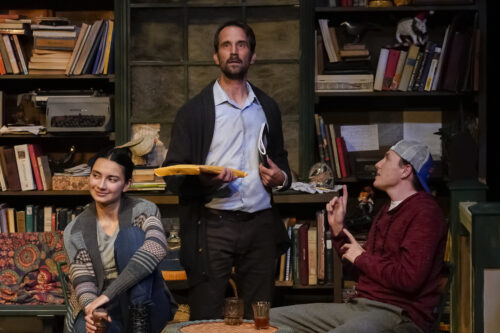
The problem is that some flames burn too brightly and Robert’s mind ranges from totally lucid to not-of-this-planet. Catherine must choose between her own future as a bright, though troubled, young woman and being a loyal daughter attempting to keep Robert functional. Meanwhile, her less–extraordinary older sister Claire (Wendy Maples) is the most level-headed of the three and wants everyone to play by her guidelines, which amounts to futilely trying to ground these two unicorns. The three family members are constantly torn between wanting to appease their counterparts and not being true to themselves, especially when outsider Hal confronts their norms.
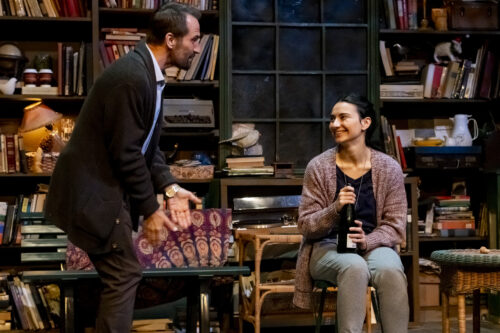
All four performers are top-notch, especially commendable for a smaller company like Backyard Renaissance Theatre, but the standout is Gercke, whose contortions, volume variants, tics, charm, and frenetic outbursts have us on the edge of our seat every time he’s on stage. A slight toss of his head in Act II says more about his opinion of Claire than twenty more lines could have, yielding a big laugh that likely exceeded anything Auburn ever expected from that line. Robert does have one monologue that goes on too long, but Gercke makes the most of it as well.
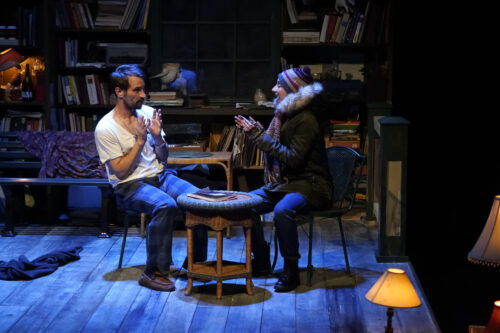
As good as Gercke is, standing firmly in her own right is Talwatte as Catherine, arguably the central character. Her facial expressions and voice tone capture the desperation of Catherine’s plight and her questioning of her own ability to function in society.
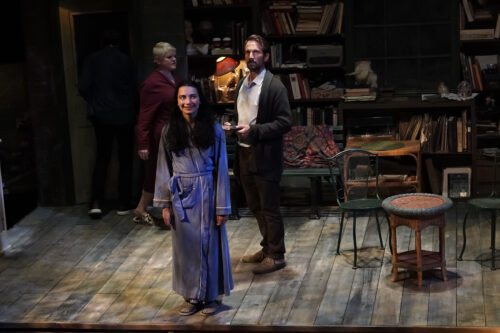
Director Anthony Methvin paces the progress beautifully, creating spellbinding chaos at times and then giving each actor moments to slow to a gentle crawl to build pathos and tenderness. Yi-Chien Lee’s set design perfectly reflects both the simplicity of their old dilapidated home and the clutter of Robert’s mind.
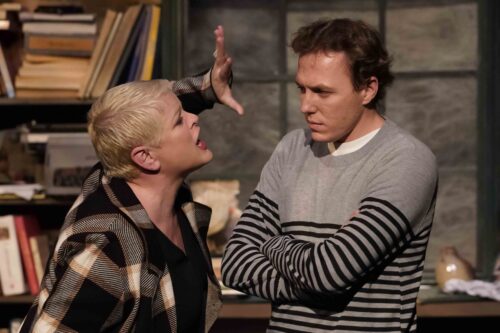
I’m hoping that the reason the theater was not well attended last Friday was due to the Balboa Park December Nights program — bland yet profusely attended — being scheduled opposite this play and creating nightmarish downtown traffic for patrons. Even if a small fraction of the people ogling yet another bulb-covered reindeer statue had, instead, found their way a quarter mile south to the Tenth Avenue Arts Complex, they would have headed home from a far more memorable, deeper and richer experience. I regret not having covered Proof earlier in its run, because more people should see this.
photos by Daren Scott
Backyard Renaissance Theatre Company
Tenth Avenue Arts Center, 930 Tenth Avenue in San Diego
every day except Tues and Wed at varied times
ends on December 9, 2023
for times and tickets, call 619.337.1525 or visit Backyard Renaissance Theatre Company
